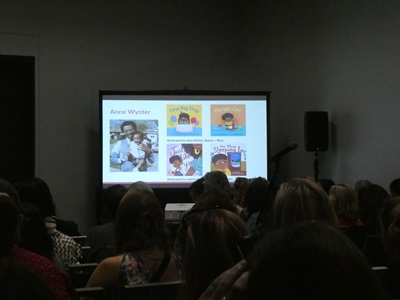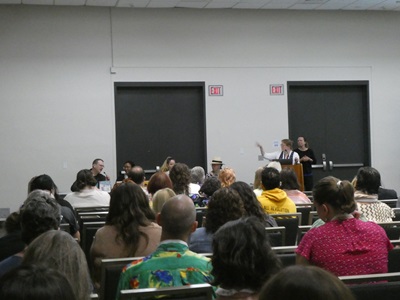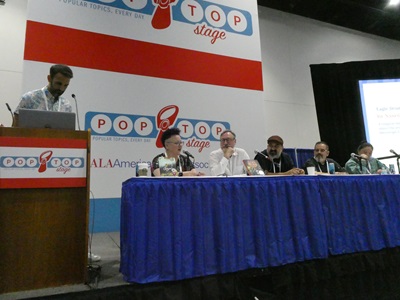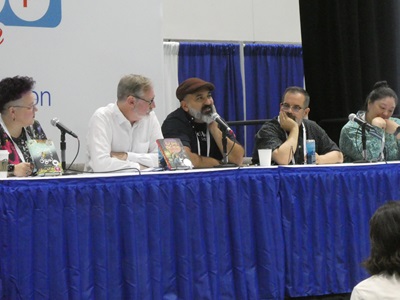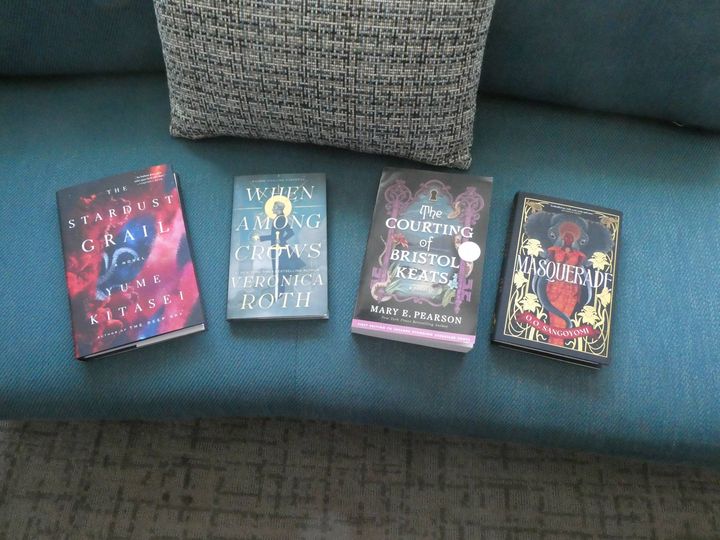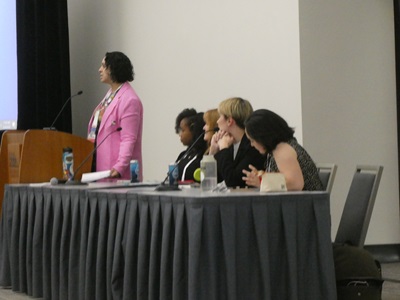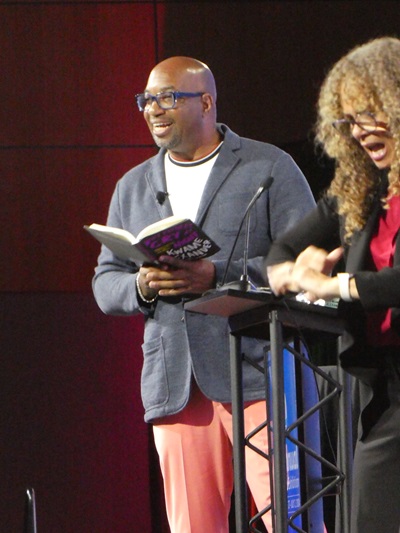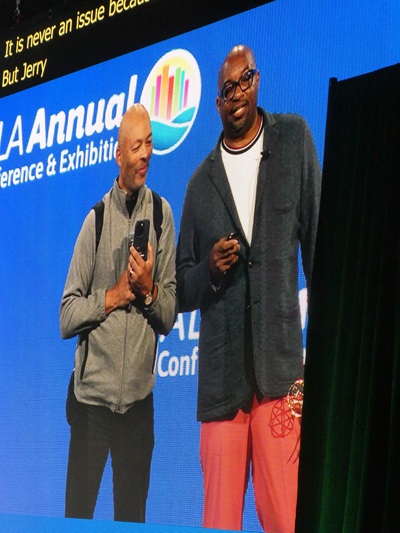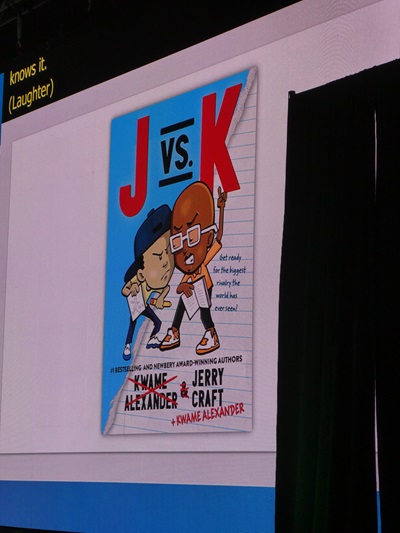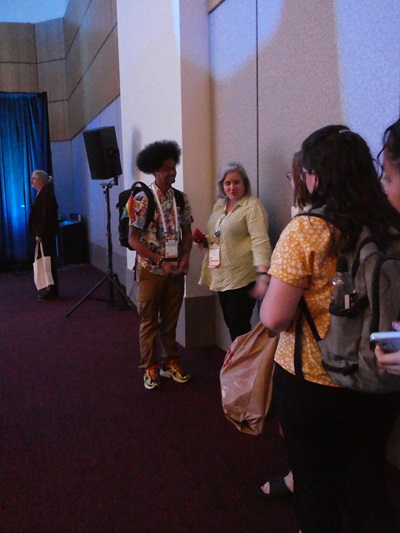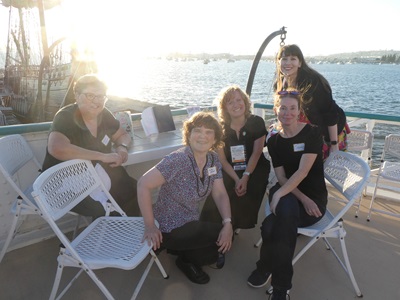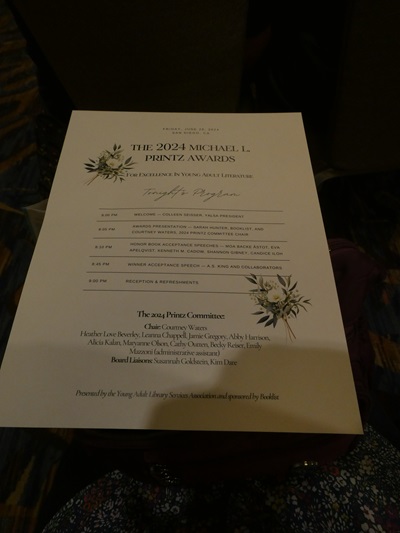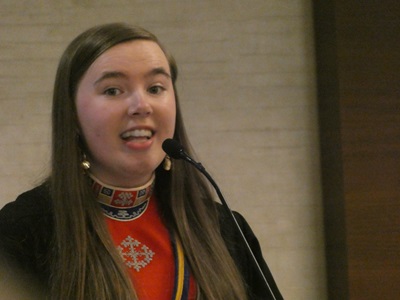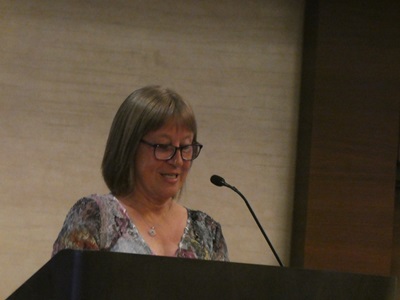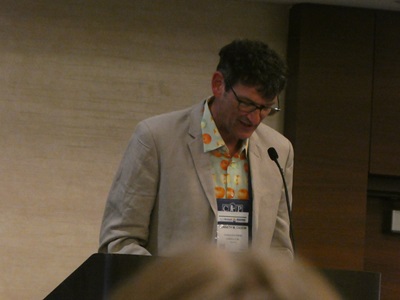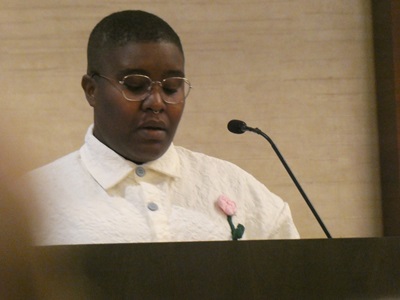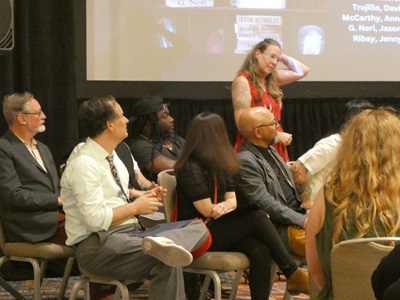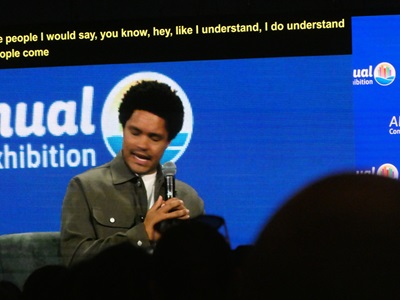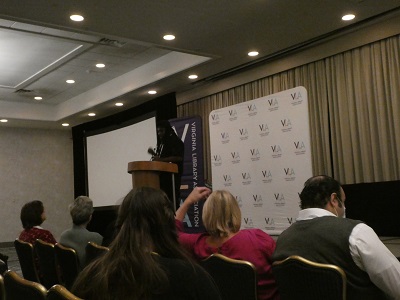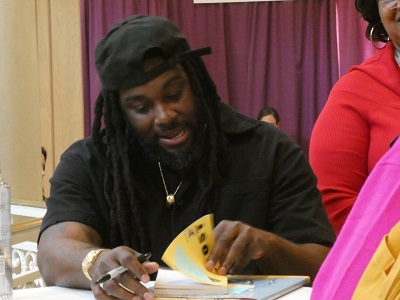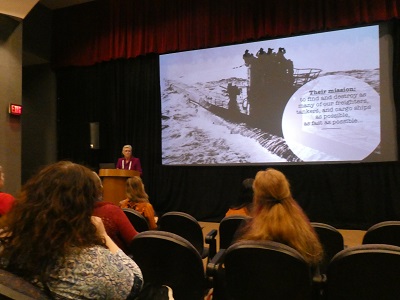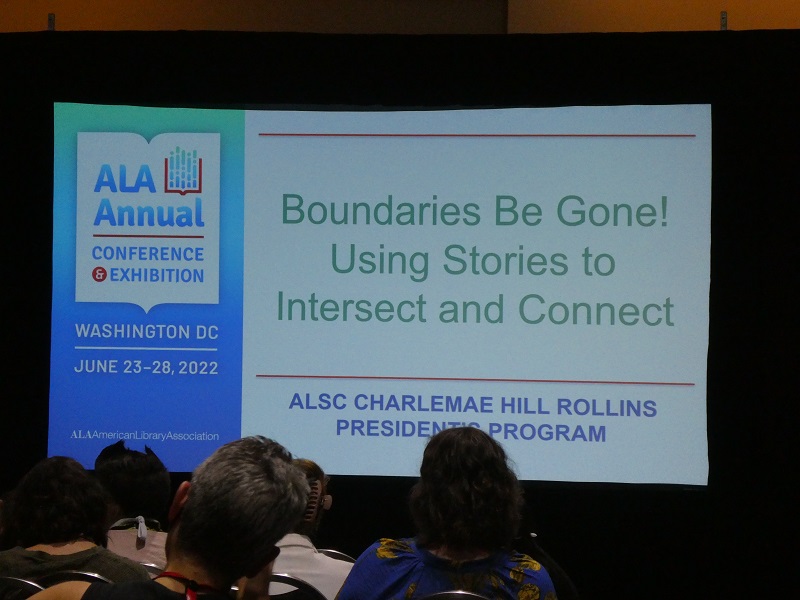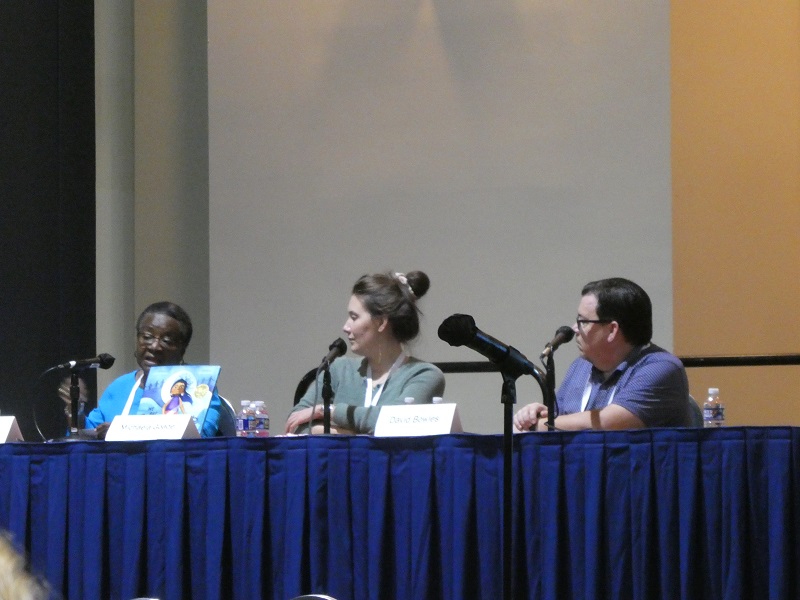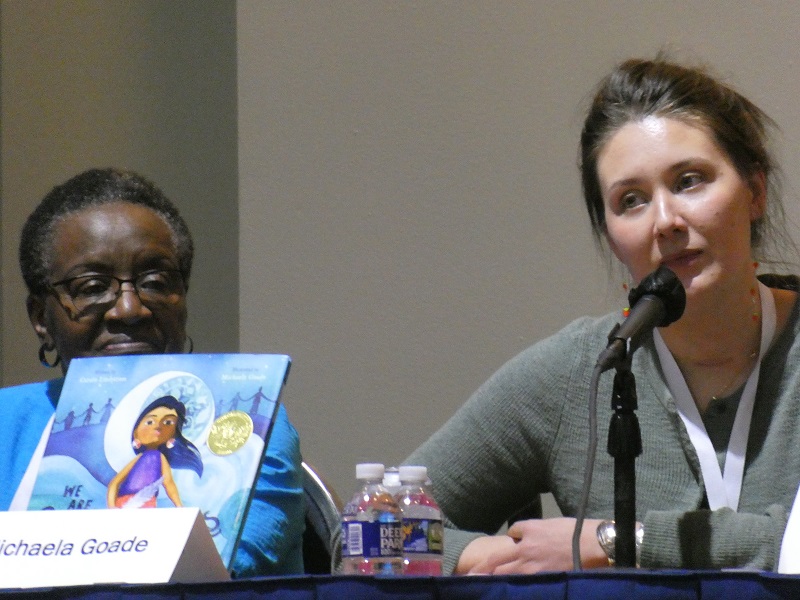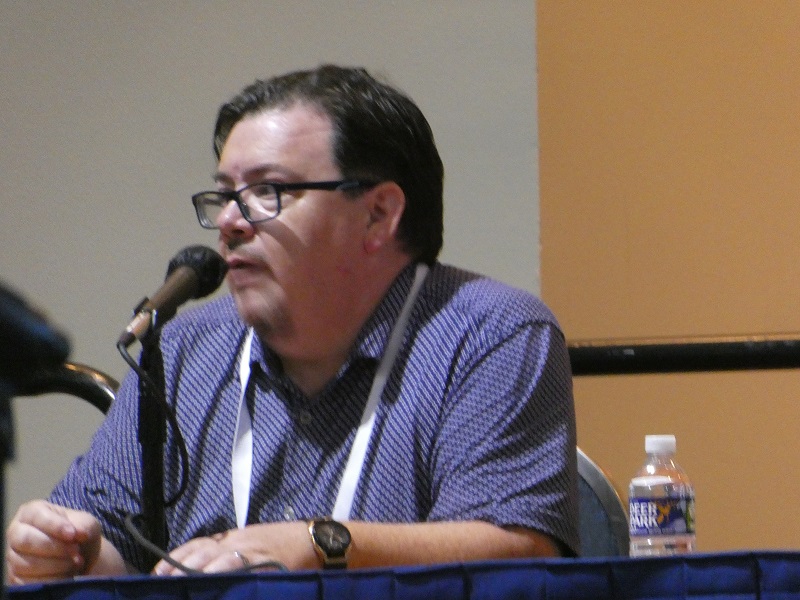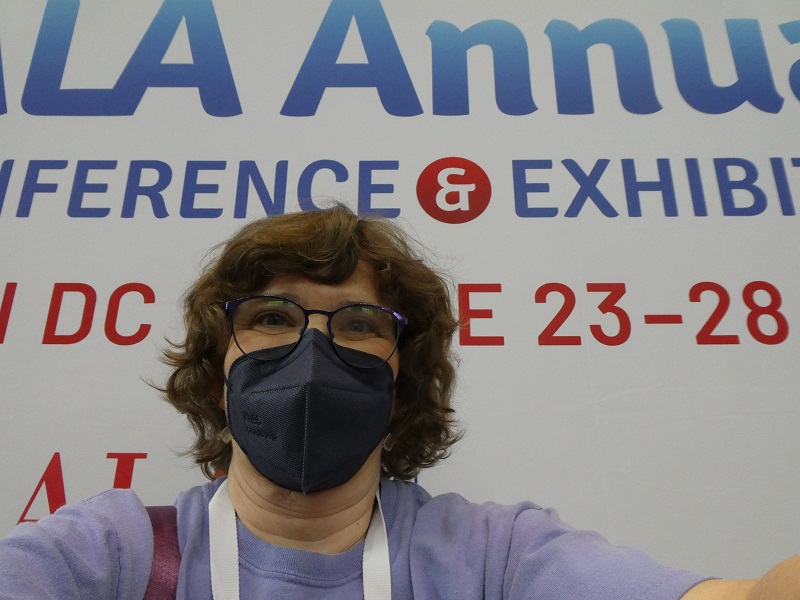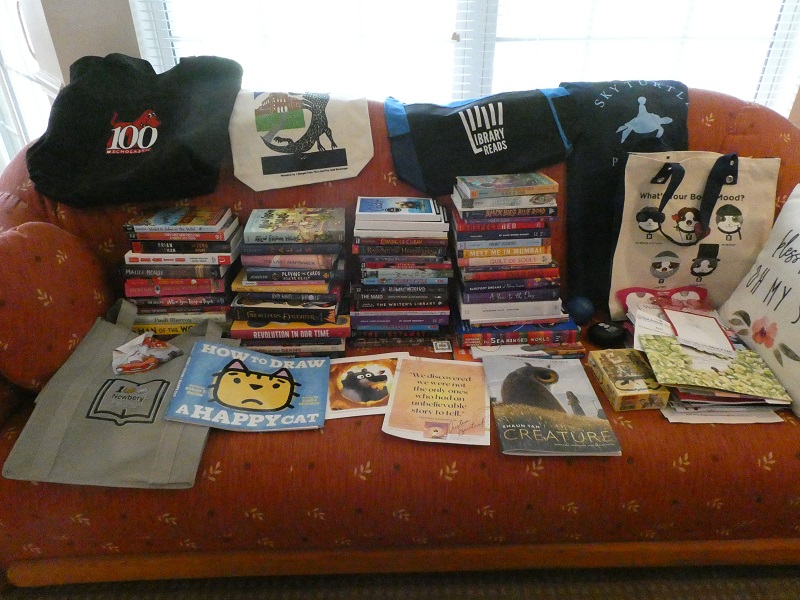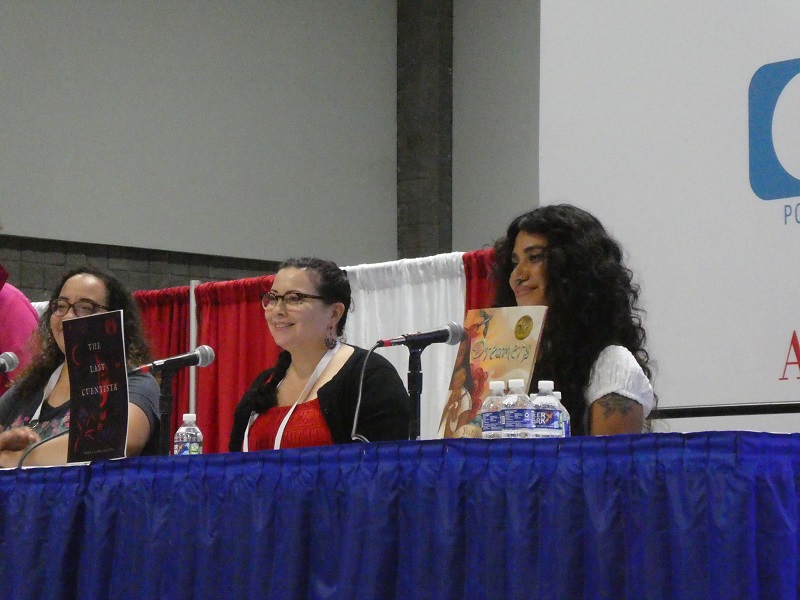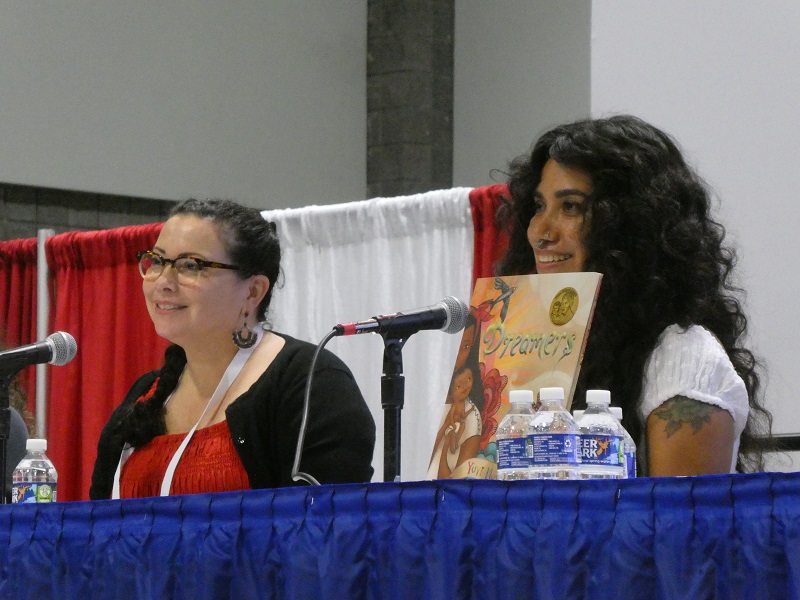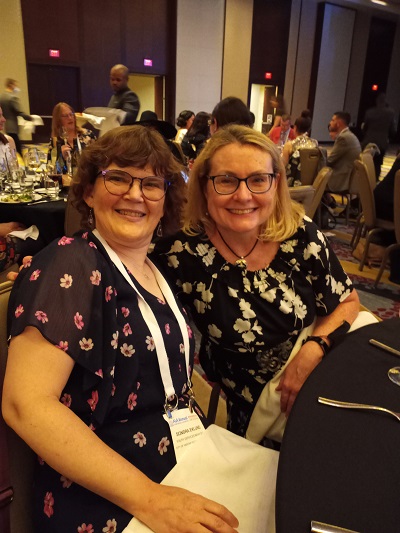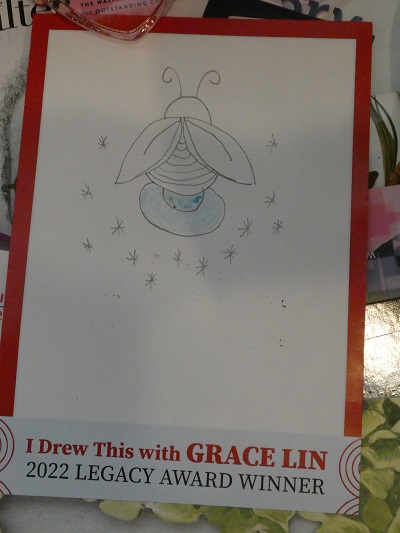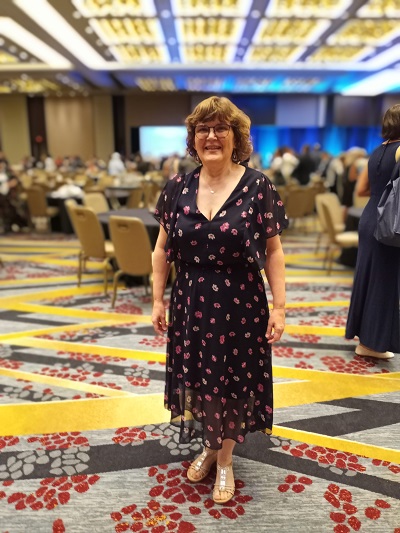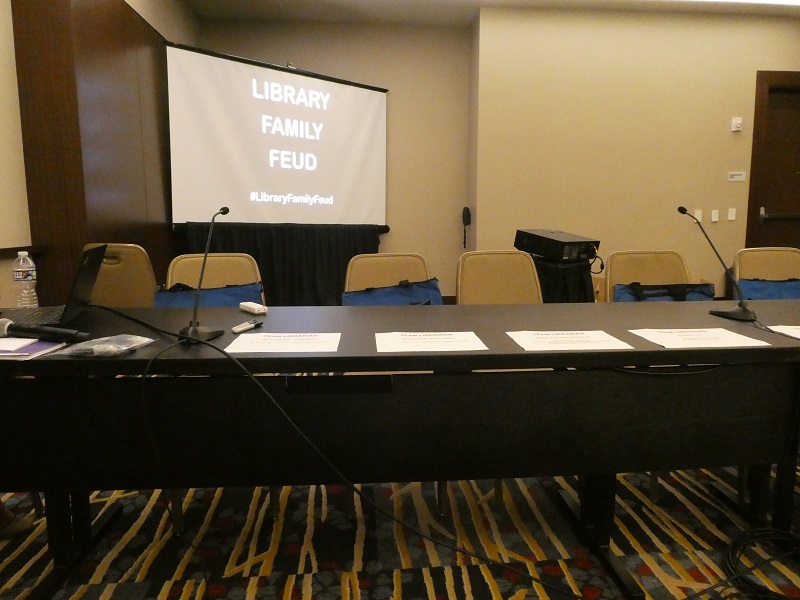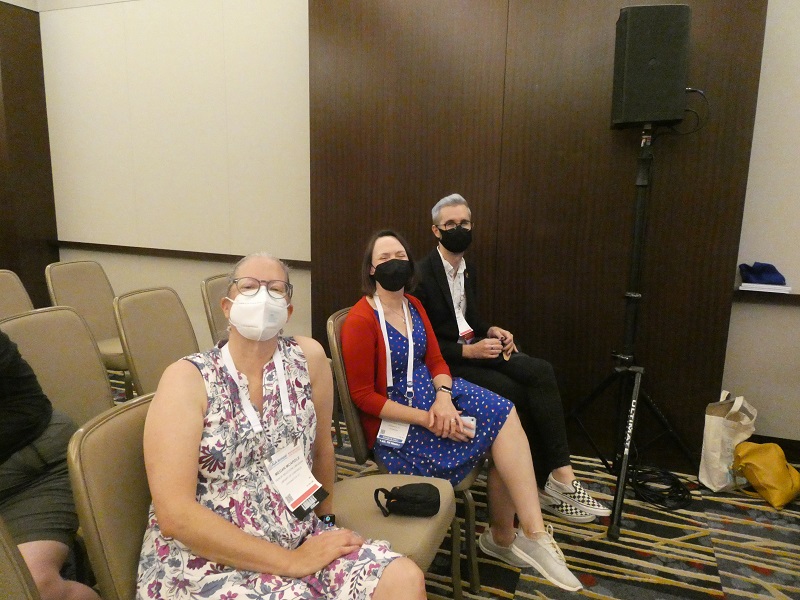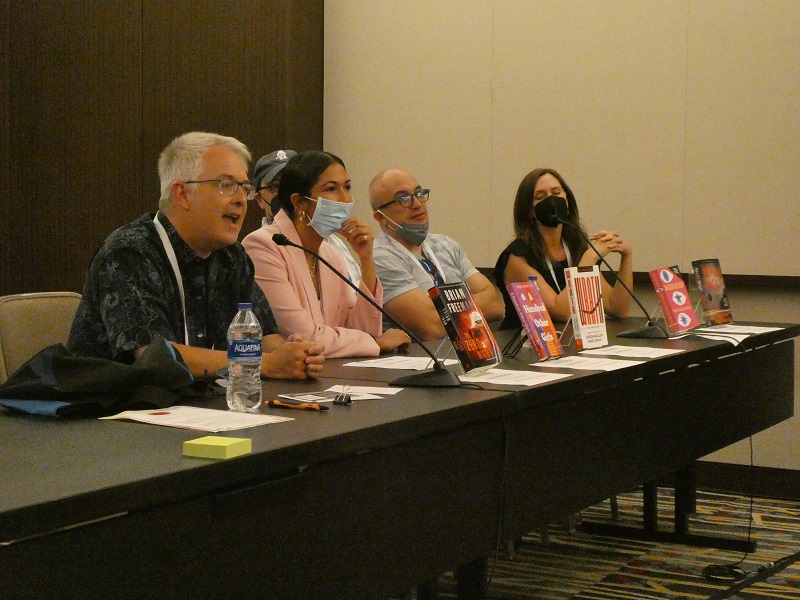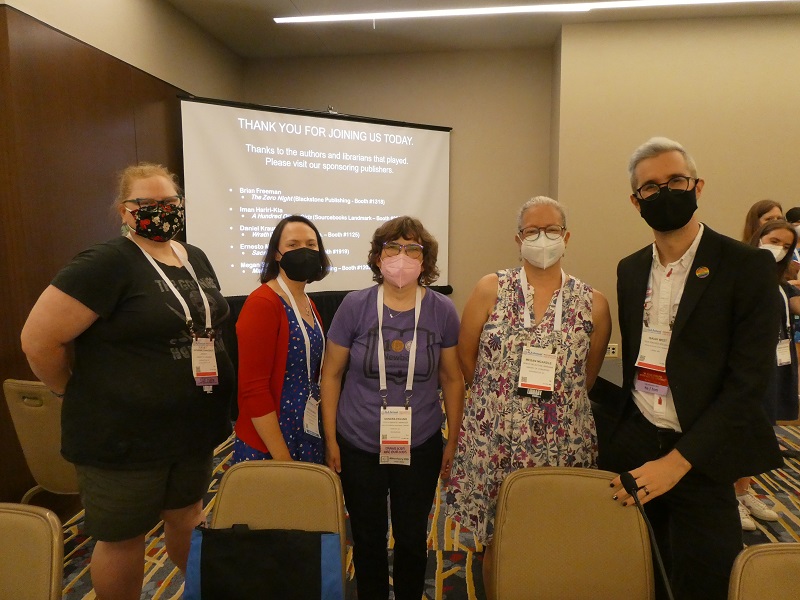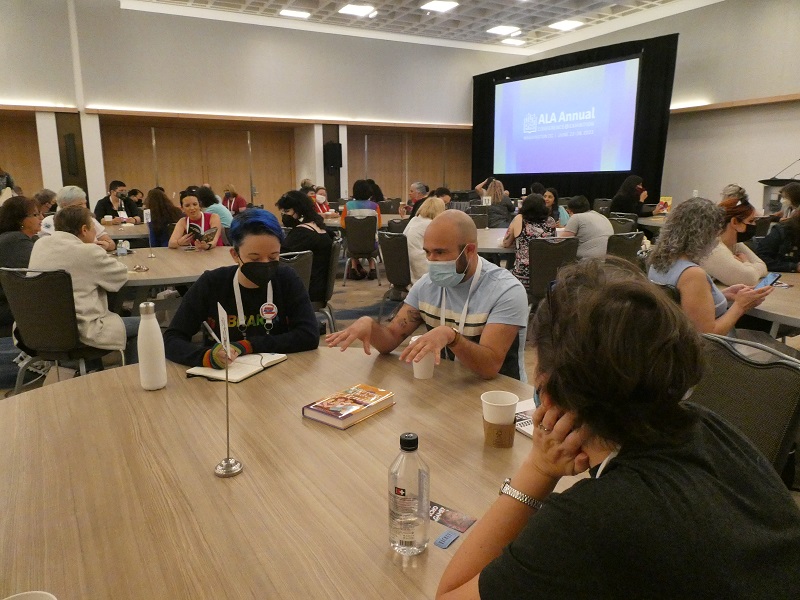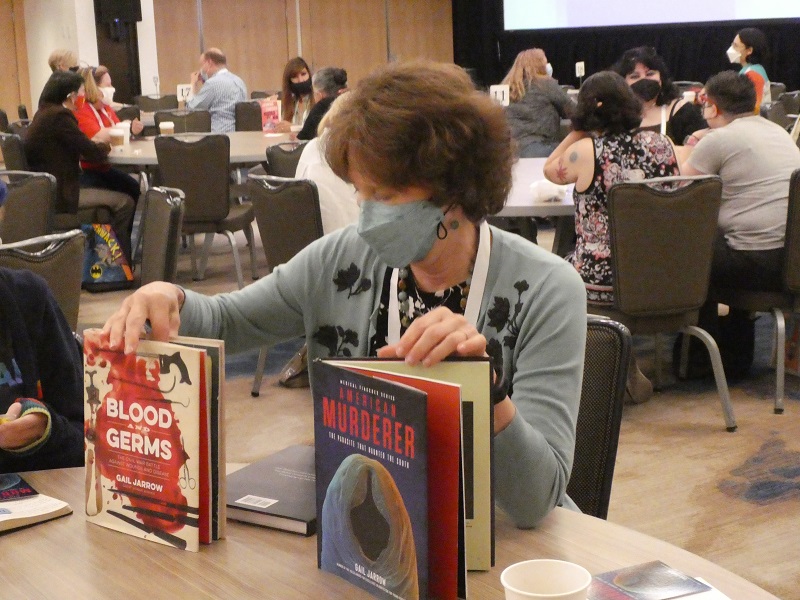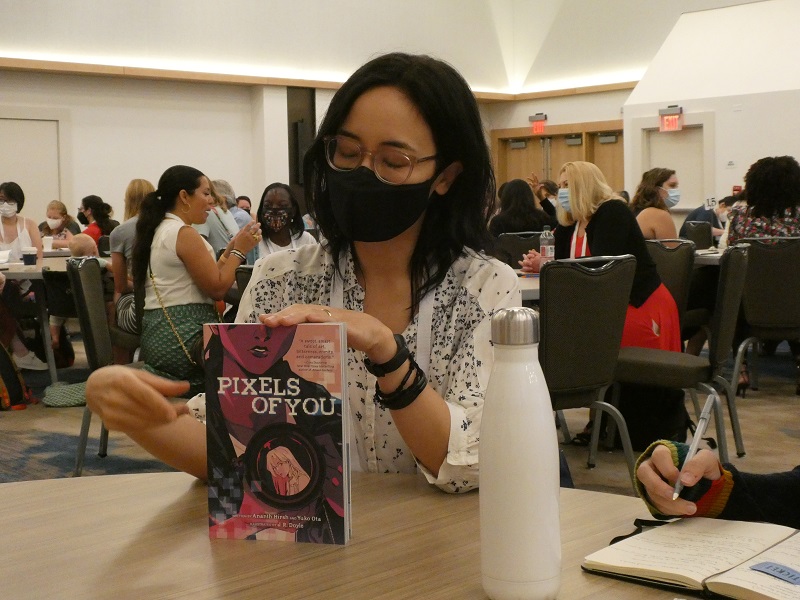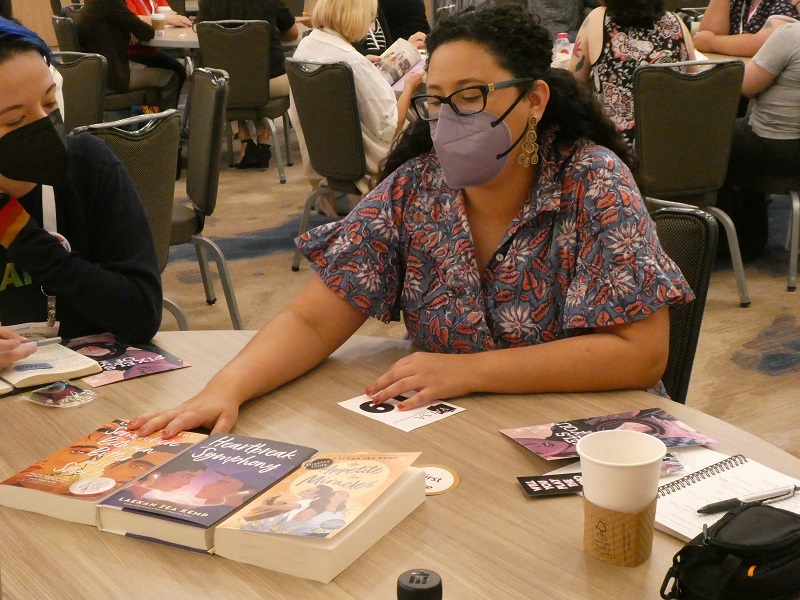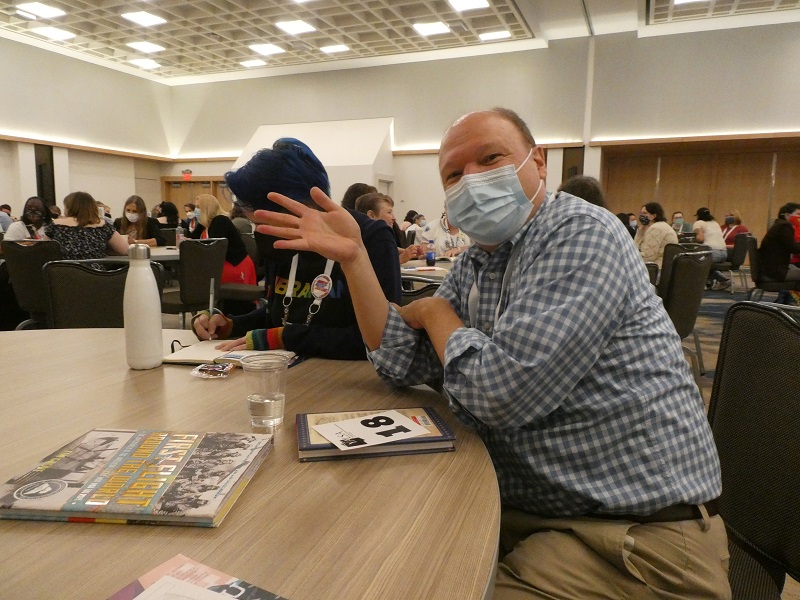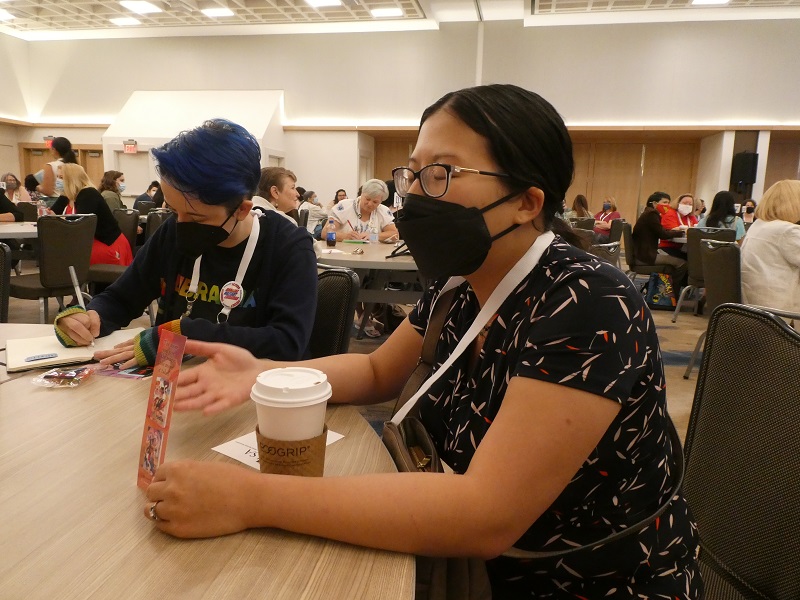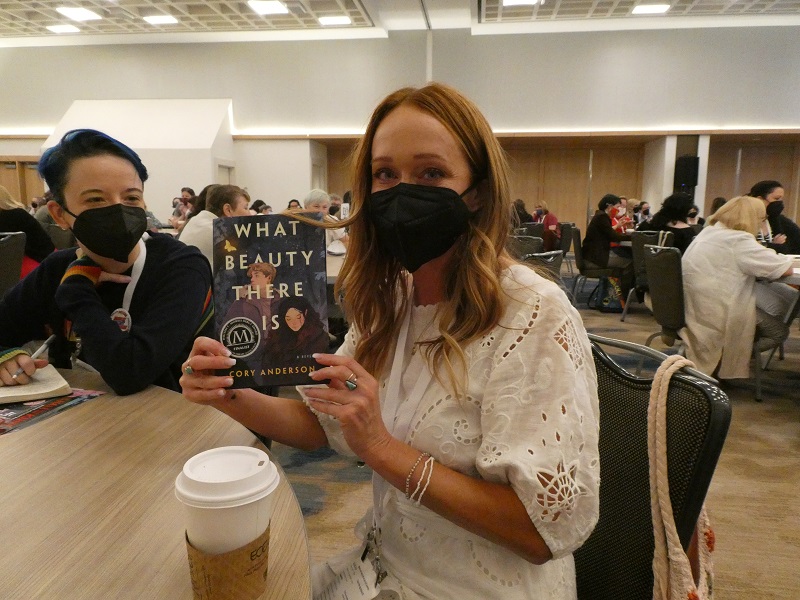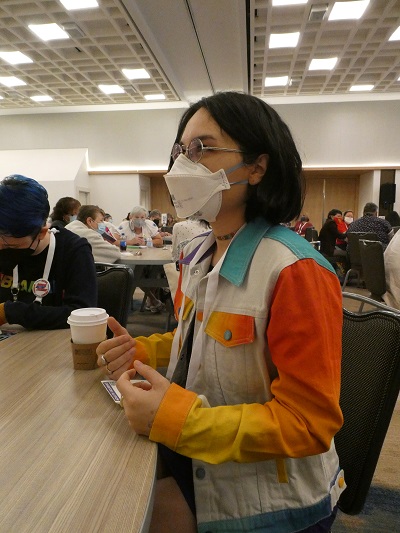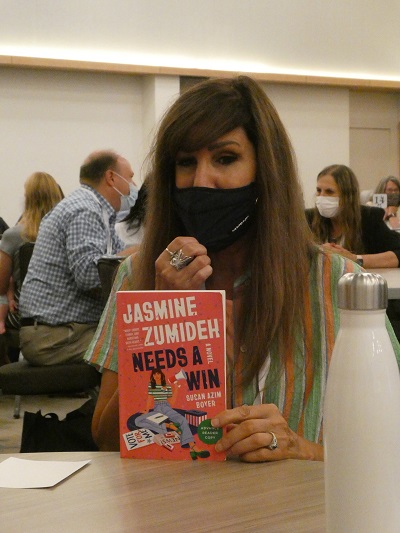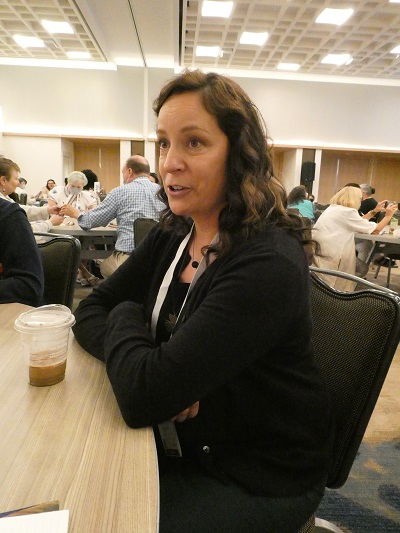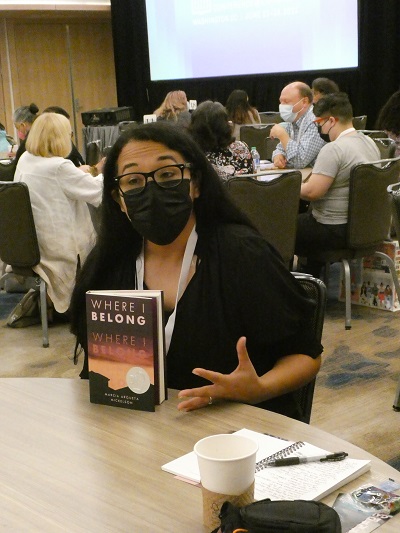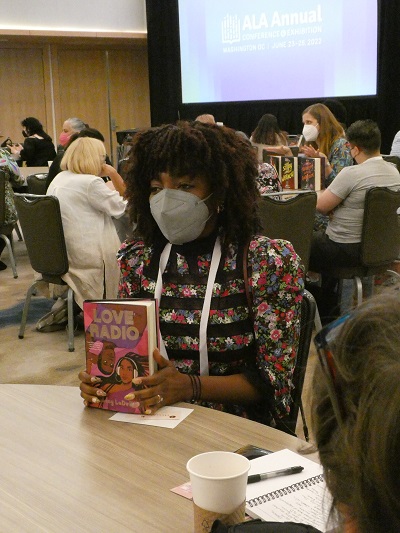ALA Annual Conference 2024 Day 2
Saturday, June 29, 2024, was the second day of the American Library Association Annual Conference in San Diego.
The first session I attended was about selecting Board Books.
Panelists were board book authors Anne Wynter, Carole Boston Weatherford, Alisha Sevigny, and Steve Light
I liked the way they talked about joy and play in board books. Steve Light wrote his first board book (about trucks) when he imitated a boy in his class of 3-year-olds who just found joy in drawing trucks.
Board books are inherently playful, and kids play physically with the books, but also play with the language of the books. Also many board books are interactive, encouraging play. The interactive books are perfect for the wiggly ones.
Next I got in on the end of a panel of Newbery Honor winners led by Travis Jonker. I didn’t get notes written, but afterward I personally congratulated Erin Bow on her amazing book, Simon Sort of Says, and somehow we got to talking about my mathematical knitting.
Next, I went to a panel of Science Fiction and Fantasy Authors called “Chaotic Good and Lawful Evil: The Appeal of Morally Gray Characters in Science Fiction and Fantasy books.”
Here are the signed books I got after that panel ended:
The authors were O. O. Sangoyomi, Mary E. Pearson, Veronica Roth, and Yume Kitasei
Moderator: Your books are based on folklore and myth. How do they get populated with these morally ambiguous characters?
MP: Morally ambiguous characters are real, and they are us.
YK: So often retellings flip who the good guys and bad guys are and help us see more. Gives the myths a whole new life.
OS: You can also give traditional villains more of a back story, which makes the story more interesting.
VR: A quote: “Through folklore we learn about a people and what they think about humanity.” We learn from Slavic folklore that being human is a drag! Unfair stuff happens all the time. They teach us about humanity, not necessarily about morality.
Moderator to OS: The king in her Hades retelling is so convinced he’s right?
OS: That’s what drew her to the myth. She wanted to give Persephone more agency. Love bordering on obsession. Love can change people for the better or the worse.
YK: He’s a villain but not a villain. The love story is somewhat toxic, but still beautiful. He’s a foil for her journey.
Moderato to VR: Your book gets us cheering for vampires.
VR: The long history of Monster Fiction is making them sympathetic. The character is deprogrammed from brainwashing. Polish immigrants came to Chicago fleeing monsters, too. They’re just trying to survive.
YK: VR has got characters working toward opposing goals, all sympathetic, but they can’t all win.
Moderator to YK: Everyone’s hero is someone’s villain. In your book, every side has a solid reason for what they’re doing. They all have a valid point.
YK: As someone biracial and bicultural, within herself, her own identities war against each other. Everybody has a different perspective, rooted in their background.
VR: Come to YK’s book for Indiana Jones and stay for thoughtful meditation on what it means to be human.
Moderator to MP: Romantasy has a trope of morally gray characters with a trope “I must keep secrets from you for your own protection.”
MP: She gets in their heads and explores their motivations. They all think they’re doing the right thing. One guy is lying because of past betrayal. Another one has a very deep fear for people’s lives. Moral conundrums are true to life. Life isn’t black and white.
VR: As an author, we don’t even want to have all the answers. Better to write questions you don’t know the answers to.
YK: Selfishness itself is not inherently bad. It can be your motivation, but that doesn’t have to be a bad thing.
Now some responses that came from audience questions:
VR: Folklore is for people in the time it exists. It’s a living thing.
MP: Celtic folklore was never written down until the Christian monks. She tries to get at what it would have been behind that filter.
OS: Greek mythology + Nigerian mythology is her personal interpretation.
VR: How much can you forgive? You don’t get to decide what other people can forgive.
MP: Can a person be redeemed?
OS: What do we consider offenses in the first place? We might not need to forgive them if we understand their motivations.
VR: People who demand moral clarity have a lack of appreciation for a narrative arc. Do you want me telling your children what to do?
After that panel, I got the four books signed. Then I went to the main session where Kwame Alexander was speaking.
He had fun talking about winning not just a Newbery, but also an Emmy for Crossover.
Then he read an amazing and precocious letter from a 5th grade fan who demanded that he write a book with a female main character. So he talked about his next book, inspired by his great-grandmother, Black Star. It is book two of a trilogy.
Then he told us about Black librarians who fought against book bans 100 years before Moms for Liberty. Folks had forbidden too many Black books in one place. But in 1921, Virginia Lee found ways to get the books to the people, despite the orders.
Public librarians, if you want a model – look no further than the Black librarians of the early 20th Century.
We are in the imagination business, and we are reimagining what it means to be in community in a paradoxical time.
Libraries aren’t just the refuge in the storm – libraries are the rainbow.
His parents surrounded him with books that made him believe he mattered.
Then during the audience question time, Kwame called Jerry Craft on stage and announced that they’re collaborating on a book together! (Even though Jerry Craft has never won an Emmy.)
It was funny, because after Kwame finished speaking, I got in a line to greet librarian Mychal Threets, who posts about Library Joy and Library Kids.
After that session, I went back to my hotel room and fell asleep – but woke up in time to walk 2 miles along the bay to go to a Macmillan Happy Hour on a boat that’s part of the San Diego Maritime Museum. There were lots of authors there, and it was an opportunity to talk with some, but I mostly hung out on the deck, where it was breezy, and talked with my fellow Morris committee members who were there, finally meeting them in person after all our Zoom meetings.
And to top it off, they told us to take as many books as we wanted, so I walked back with these. Two of them are second books from debut authors who made an impression during my Morris reading.
All in all, it was a grand first full day of the conference. No wonder I was tired!

